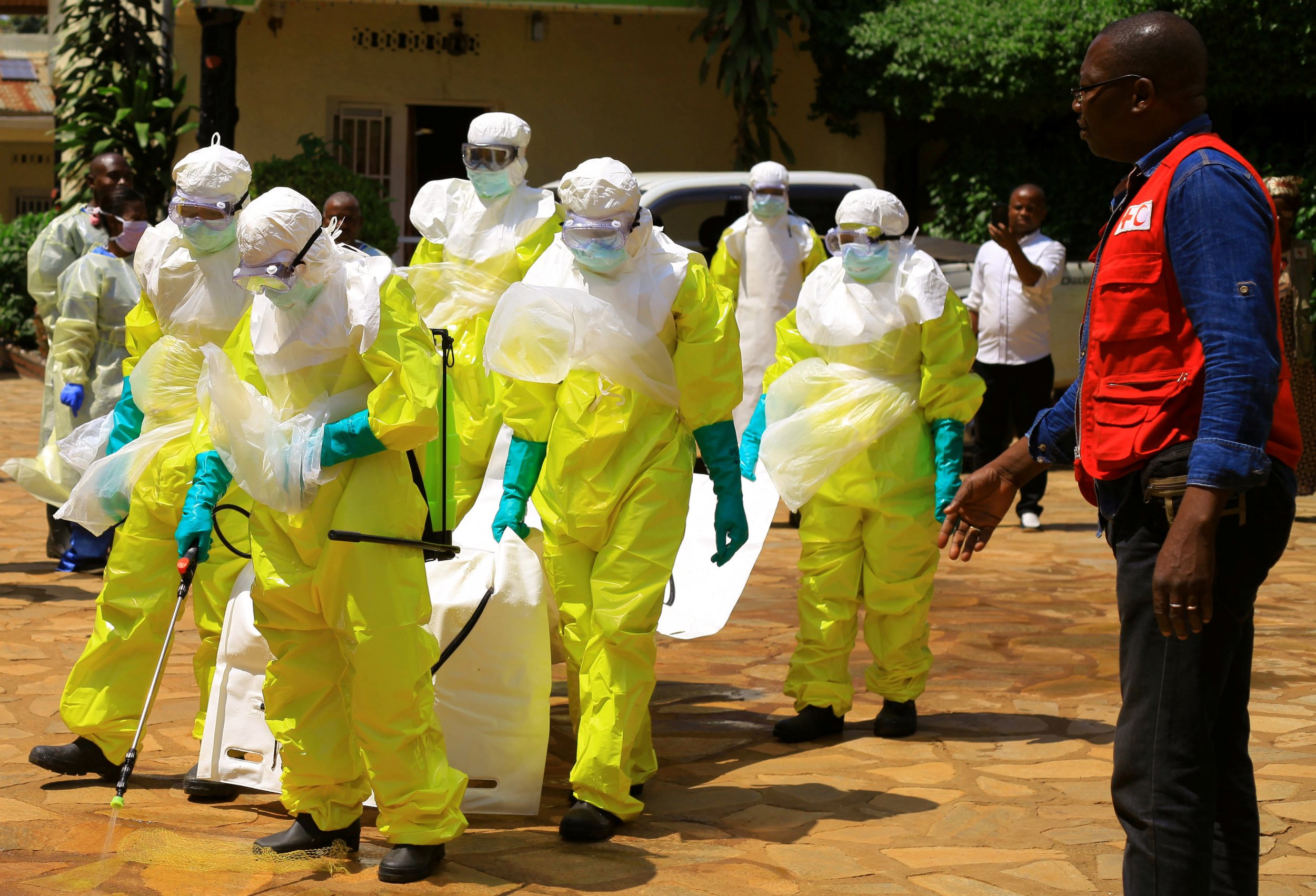
The World Health Organization asked on Tuesday for violence to end in the war-torn northeastern part of the Democratic Republic of Congo, where more than 100 armed groups and military forces are fighting, so that health workers can combat an Ebola outbreak that has killed 41 people.
"We call on the warring parties for a cessation of hostilities because the virus is dangerous to all. It doesn't choose between this group and that group," said Dr. Tedros Adhanom Ghebreyesus, director-general of the World Health Organization.
There are about 3.7 million people in the Democratic Republic of Congo who have been displaced by the conflict that has been raging for 23 years. Rival groups have fought each other and against military forces in a bid to take control of a mineral-rich region.
Areas where an internal conflict has made it impossible for rescuers to access those affected have been labeled as "red zones." These swathes of territory contain a large number of people, which the World Health Organization says leads to more difficulties in trying to eradicate the virus.
"The environment is really conducive for Ebola to transmit freely," said Tedros. "This is a very dangerous outbreak. What makes the outbreak in eastern DRC or northern Kivu more dangerous is there is a security challenge—there is active conflict in that area."
The World Health Organization warned early this month that vaccination teams would have to be escorted into the contaminated areas by armed convoys in order to try and find those who may have been exposed to the disease.
"Even though we have access to the towns of Mangini and Beni, we don't know to what extent we will be able to rely on armed escorts for broader contact tracing outside those small towns. That's going to be a critical determining factor in our ability to respond," said Tarik Jasarevic, a spokesman from the World Health Organization.
An Ebola outbreak that started in May and killed 29 people in the Equateur province was officially declared over by the government at the end of July. It was the country's ninth outbreak in 40 years.
"The outbreak was contained due to the tireless efforts of local teams, the support of partners, the generosity of donors, and the effective leadership of the ministry of health," Tedros said at the time. "That kind of leadership, allied with strong collaboration between partners, saves lives."
Seven health workers were infected in Mangina, where the main health center in North Kivu is located. Seventy-five others were sent home as a precaution.
The disease was discovered near the Ebola River in 1976. If left untreated, the virus can be fatal and includes symptoms such as diarrhea, vomiting, and sometimes internal and external bleeding.
Uncommon Knowledge
Newsweek is committed to challenging conventional wisdom and finding connections in the search for common ground.
Newsweek is committed to challenging conventional wisdom and finding connections in the search for common ground.
About the writer
To read how Newsweek uses AI as a newsroom tool, Click here.








